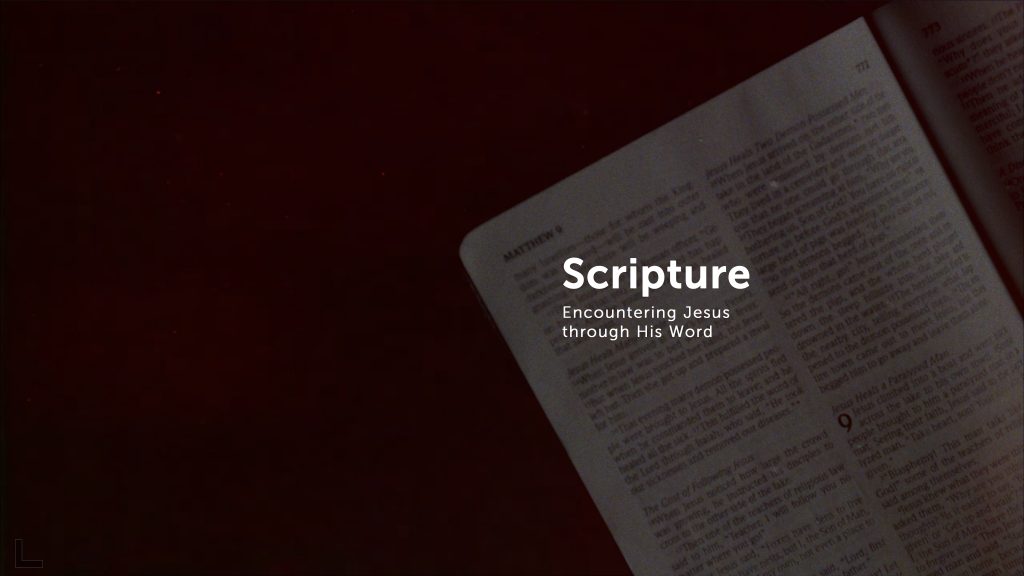
Read | Reflect | Respond
“Labour is a craft, but perfect rest is an art. It is the result of an accord of “This may be the single most important thing to know as we come to read and study and believe these Holy Scriptures: this rich, alive, personally revealing God as experienced in Father, Son, and Holy Spirit, personally addressing us in whatever circumstances we find ourselves, at whatever age we are, in whatever state we are — me, you, us. Christian reading is participatory reading, receiving the words in such a way that they become interior to our lives, the rhythms and images becoming practices of prayer, acts of obedience, ways of love.”
Eugene Peterson
–
We want to invite you to practice a simple way of reading the Scriptures that opens you up to encounter and transformation, rather than efficiency and information.
Known as Lectio Divina, this practice of reading Scripture is rooted in the idea that through the presence of Jesus, the words of the Scriptures come alive as He speaks directly to us through them. As we learn this practice, we come to the text with humility, open and attentive to what Jesus is saying and what He is inviting us to do in response.
This way of reading the bible, doesn’t simply fill our heads with information, but forms us and compels us to incarnate what Jesus is inviting us into. We become devoted to the Scriptures through unhurried devotional reading that draws us deeper into communion with Jesus.
PRACTICE GUIDE
This is a simple framework for you to put into practice as you approach any passage of Scripture, whether it’s 321 daily bible readings that shape your rhythm of spending time with Jesus day by day, or other texts you are reading.
As you are starting out, it may be helpful to concentrate on the following steps to feel it out. As you build this rhythm of reading, you will find that the movements begin to naturally flow into each other and become second nature to you.
Let us introduce you to this way of reading the Scriptures to encounter Jesus.
REST
Before you read the text, take a moment to be still. In the silence open yourself up to the presence of Jesus and move towards reading by praying a simple prayer like, “Come, Holy Spirit.”
READ
Slowly read through a small portion of the text (between five and ten verses), two or three times. It is helpful to read the text aloud at least once, as it focuses our attention and increases our awareness of what is being said. Allow the words you are read to resonate in your heart.
As you read, begin to notice which words, phrases or moments catch your attention.
REFLECT
Take time to wait for what Jesus is wanting to say to you in this moment. The best way for us to reflect is by asking simple questions that open us up through intimate and quiet conversation.
Begin by considering the words, phrase or moments that you were drawn to in reading the text. Consider why – why did I need to hear this word today?
Reflect a little further by asking simple questions, directed towards Jesus and wait for Him. You may want to reflect silently or by journalling. Consider questions like:
Jesus, what are you seeing? Jesus, what are you saying?
Jesus, what are you inviting me to be, know, understand, or receive?
Jesus, what are you inviting me to do?
RESPOND
We respond in two ways.
With the Scriptures still open, we respond in prayer and contemplation as we communicate to God about what you have heard. Give yourself some space before you step back into your day to sit with what has been revealed and rest in God’s presence.
As we close our bibles, we’re invited into a further response as we practice and demonstrate what Jesus has said. The way of Jesus is found in both hearing and doing. If Jesus has challenged you to put something into practice, go for it, but just don’t hesitate. We respond by incarnating the words we have received.
LECTIO DIVINA PASSAGES
The movements of reading, reflecting and responding can be used with any passage of scripture, yet as you get used to reading the bible in this way, the following passages and suggested reflection questions are great places to start.
Isaiah 43: 1-7
Of the ideas offered in this passage, which are the most significant for me and my family in lockdown?
Luke 8: 26-39
Take time to picture the change in this man.
What identities or behaviours do you want to left go of?
1 Corinthians 13: 4-8
As you read replace ‘love’ with ‘Jesus’.
Which descriptions of Jesus are most compelling right now?
Ephesians 1: 3-14
Which blessing do you long to experience more of today?
What does this passage tell you about what God is like?
FURTHER READING
Eat This Book – Eugene Peterson
Sacred Rhythms – Ruth Haley Barton
Meeting God in Scripture – Jan Johnson
